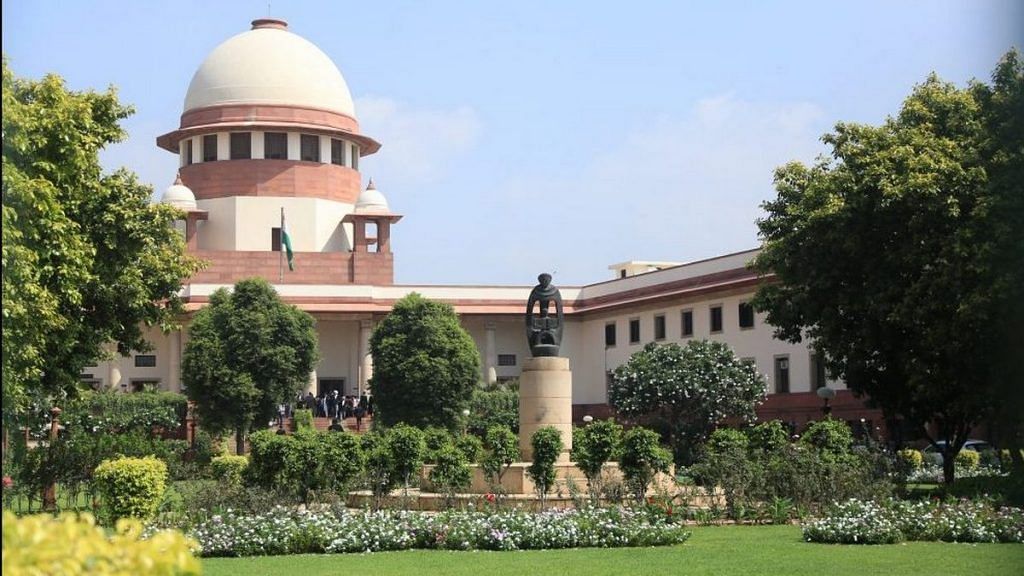The opposition to the idea of affirmative action or reservation in India often comes from the dominant mythology that it dilutes merit and reduces efficiency. This has been a major bone of contention behind the consistent litigation in courts, challenging the reservation in promotion policies for the Scheduled Castes and the Scheduled Tribes (SC/STs) in government services.
A landmark judgment delivered last week by Justice U.U. Lalit and Justice D.Y. Chandrachud has summarily debunked this narrow understanding of “merit” that has come to pollute public debate in the last several decades. Authored by Justice Chandrachud, the judgment has upheld the constitutional validity of a Karnataka law, which protects the consequential seniority of persons belonging to the SC/STs promoted under the state’s reservation policy.
Under this reservation policy, if a person from the SC/ST category, who is junior to a person belonging to the general category, is promoted earlier, then s/he would be considered the senior at the higher-level post. This, even after the person from the general category is eventually promoted to the same post.
Also read: Can reservation help BJP get the upper caste vote in Lok Sabha elections?
Administrative efficiency & myths
Delving into the legislative history behind the enactment of this Karnataka law and the constitutional history on the interpretation of the scope of reservation in promotion policies, the judgment held that there has been no empirical proof to the myth that officials/candidates selected through quotas are inefficient or that those selected otherwise perform better. The judgment rightly points out that “administrative efficiency is an outcome of the actions taken by officials after they have been appointed or promoted and is not tied to the selection method itself”.
Law cannot be divorced from social realities. Institutional denial of reality perpetuates and strengthens already existing practices of inequalities. By incorporating the provisions of reservation in the Constitution, the framers took into account the social realities and sought to undo the “centuries of discrimination and prejudice suffered by the SCs and STs in a feudal, caste-oriented societal structure”. This transformative vision of the Constitution, as the judgment strongly underlines, cannot be buried by the myths around “efficiency of administration” and “merit”.
The phrase “efficiency of administration” has a constitutional context. “Efficiency of administration” will not be maintained if the claims of the SCs/STs are completely excluded in the appointments to government services and posts. Reservation in promotion policies for the SCs/STs are an implementation of this constitutional condition. Not having proper representation of marginalised communities, which form a sizeable portion of India’s population, in government services will definitely make administration exclusionary and reduce its credibility. Diversity and inclusion, on the other hand, can improve efficiency of administration.
The judgment powerfully captures this understanding: “If this benchmark of efficiency is grounded in exclusion, it will produce a pattern of governance which is skewed against the marginalised. If this benchmark of efficiency is grounded in equal access, our outcomes will reflect the commitment of the Constitution to produce a just social order”.
Also read: 17th Lok Sabha looks set to confirm Ambedkar’s fears: no vocal Dalits in Parliament
Narrow interpretation of merit
The notion of substantive equality, enshrined in our Constitution, has been shaped by a four-dimensional approach: “to redress disadvantage; address stigma, stereotyping, prejudice, and violence; enhance voice and participation; and accommodate difference and achieve structural change”, as explained by Oxford University Professor Sandra Fredman.
Targeting the reservation policies by stigmatising, stereotyping and prejudicing the efficiency of SCs/STs, who have been historically and socially disadvantaged, is clearly violative of substantive equality, which has also been underlined in the judgment.
The concept of merit cannot be narrowly restricted to one’s rank in a standardised exam. The Supreme Court judgment explains the deep relationship between equal opportunity, social and structural inequalities, and merit: “… a “meritorious” candidate is not merely one who is “talented” or “successful” but also one whose appointment fulfils the constitutional goals of uplifting members of the SCs and STs and ensuring a diverse and representative administration”.
Before this judgment, there was confusion among policymakers on the scope of reservation in promotion policies. After analysing the previous Constitution Bench decisions in M. Nagaraj (2006) and Jarnail Singh (2018), Justice Chandrachud came to the conclusion that the condition of the creamy layer will not apply on testing the validity of a law, which protects consequential seniority as an incident of promotion. However, other conditions set out in Jarnail Singh decision still need to be complied with.
Also read: How three key Supreme Court judgments shook the faith of SCs, STs and OBCs in one year
Butterfly effect
In her celebrated book Butterfly Politics, scholar and Professor Catharine Mackinnon said, “The minuscule motion of a butterfly’s wings can trigger a tornado half a world away, according to chaos theory… [Similarly,] interventions in the legal realm can have a butterfly effect, generating major social and cultural transformations”.
Justice Chandrachud’s judgment has opened a door for other state governments to adopt similar approach in enacting reservation in promotion policies for SCs/STs – and expand and enrich our facile understanding of justice and collective responsibility.
The author is an LLM student at Harvard Law School. He tweets at@anuragbhaskar_ Views are personal.
